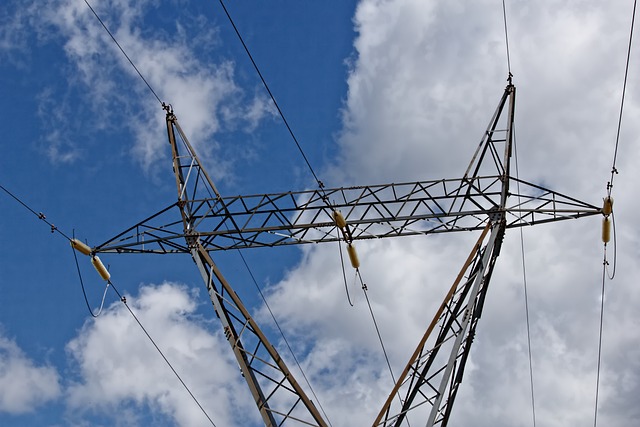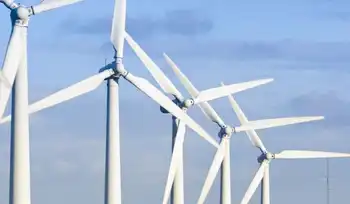Experts Advise Against Cutting Quebec's Energy Exports Amid U.S. Tariff War

Protective Relay Training - Basic
Our customized live online or in‑person group training can be delivered to your staff at your location.

- Live Online
- 12 hours Instructor-led
- Group Training Available
Quebec Hydropower Export Retaliation examines using electricity exports to counter U.S. tariffs amid Canada-U.S. trade tensions, weighing clean energy supply, grid reliability, energy security, legal risks, and long-term market impacts.
Key Points
Using Quebec electricity exports as leverage against U.S. tariffs, and its economic, legal, and diplomatic consequences.
✅ Revenue loss for Quebec and higher costs for U.S. consumers
✅ Risk of legal disputes under trade and energy agreements
✅ Long-term erosion of market share and grid cooperation
As trade tensions between Canada and the United States continue to escalate, with electricity exports at risk according to recent reporting, discussions have intensified around potential Canadian responses to the imposition of U.S. tariffs. One of the proposals gaining attention is the idea of reducing or even halting the export of energy from Quebec to the U.S. This measure has been suggested by some as a potential countermeasure to retaliate against the tariffs. However, experts and industry leaders are urging caution, emphasizing that the consequences of such a decision could have significant economic and diplomatic repercussions for both Canada and the United States.
Quebec plays a critical role in energy trade, particularly in supplying hydroelectric power to the United States, especially to the northeastern states, including New York where tariffs may spike energy prices according to analysts, strengthening the case for stable cross-border flows. This energy trade is deeply embedded in the economic fabric of both regions. For Quebec, the export of hydroelectric power represents a crucial source of revenue, while for the U.S., it provides access to a steady and reliable supply of clean, renewable energy. This mutually beneficial relationship has been a cornerstone of trade between the two countries, promoting economic stability and environmental sustainability.
In the wake of recent U.S. tariffs on Canadian goods, some policymakers have considered using energy exports as leverage, echoing threats to cut U.S. electricity exports in earlier disputes, to retaliate against what is viewed as an unfair trade practice. The idea is to reduce or stop the flow of electricity to the U.S. as a way to strike back at the tariffs and potentially force a change in U.S. policy. On the surface, this approach may appear to offer a viable means of exerting pressure. However, experts warn that such a move would be fraught with significant risks, both economically and diplomatically.
First and foremost, Quebec's economy is heavily reliant on revenue from hydroelectric exports to the U.S. Any reduction in these energy sales could have serious consequences for the province's economic stability, potentially resulting in job losses and a decrease in investment. The hydroelectric power sector is a major contributor to Quebec's GDP, and recent events, including a tariff threat delaying a green energy bill in Quebec, illustrate how trade tensions can ripple through the policy landscape, while disrupting this source of income could harm the provincial economy.
Additionally, experts caution that reducing energy exports could have long-term ramifications on the energy relationship between Quebec and the northeastern U.S. These two regions have developed a strong and interconnected energy network over the years, and abruptly cutting off the flow of electricity could damage this vital partnership. Legal challenges could arise under existing trade agreements, and even as tariff threats boost support for Canadian energy projects among some stakeholders, the situation would grow more complex. Such a move could also undermine trust between the two parties, making future negotiations on energy and other trade issues more difficult.
Another potential consequence of halting energy exports is that U.S. states may seek alternative sources of energy, diminishing Quebec's market share in the long run. As the U.S. has a growing demand for clean energy, especially as it looks to transition away from fossil fuels, and looks to Canada for green power in several regions, cutting off Quebec’s electricity could prompt U.S. states to invest in other forms of energy, including renewables or even nuclear power. This could have a lasting effect on Quebec's position in the U.S. energy market, making it harder for the province to regain its footing.
Moreover, reducing or ceasing energy exports could further exacerbate trade tensions, leading to even greater economic instability. The U.S. could retaliate by imposing additional tariffs on Canadian goods or taking other measures that would negatively impact Canada's economy. This could create a cycle of escalating trade barriers that would hurt both countries and undermine the broader North American trade relationship.
While the concept of using energy exports as a retaliatory tool may seem appealing to some, the experts' advice is clear: the potential economic and diplomatic costs of such a strategy outweigh the short-term benefits. Quebec’s role as an energy supplier to the U.S. is crucial to its own economy, and maintaining a stable, reliable energy trade relationship is essential for both parties. Rather than escalating tensions further, it may be more prudent for Canada and the U.S. to seek diplomatic solutions that preserve trade relations and minimize harm to their economies.
While the idea of using Quebec’s energy exports as leverage in response to U.S. tariffs may appear attractive on the surface, and despite polls showing support for tariffs on energy and minerals among Canadians, it carries significant risks. Experts emphasize the importance of maintaining a stable energy export strategy to protect Quebec’s economy and preserve positive diplomatic relations with the U.S. Both countries have much to lose from further escalating trade tensions, and a more measured approach is likely to yield better outcomes in the long run.















